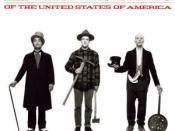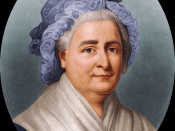Our country, The United States of America, was essentially founded on the principles of life, liberty, and the pursuit of happiness through solidarity of human kind. In Bernard R. Boxill's article, 'Separation or Assimilation,' he fundamentally poses the Hamletesque question: to assimilate or not to assimilate. Subsequent to the dilemma of some black cultural nationalists, whom not only argue for assimilation of the black American populace, but also believe that this assimilation into white culture is inevitable, against cultural pluralism. Cultural pluralism, which was initialized by W. E.B. Dubois in the late 19th century, is founded upon the peculiarities of races, living harmoniously in one nation-state, and lacking superiority or inferiority. Consequently to posing this question one dictates that there exist certain boundaries between cultures in our American society. Where do these boundaries come from and are they indeed necessary? Is integration of these cultures indeed inevitable?
The goal of cultural pluralism as stated by Boxill are to establish pride in one's own race, to maintain the authenticity of one's own culture, and finally to benefit the world populace.
Through pride, the disdain of inferiorities along with self respect, one adopts an attitude of self-segregation. Boxill argues for pride as a means of preserving one's race, overemphasizing differences between individuals because of the color of their skin or cultural differences, is a great defense to assimilation.
Understanding Dubois's concept of cultural authenticity is to delve into the mysteries of self-actualization, that is to realize one's own potential. He asks himself, as an African American, whether his true identity lies in the jungles of Africa or in this land of America. He is of the opinion that these are his only two options. He concludes that his true identity goes beyond his American birth, citizenship, political ideals, language, laws,


